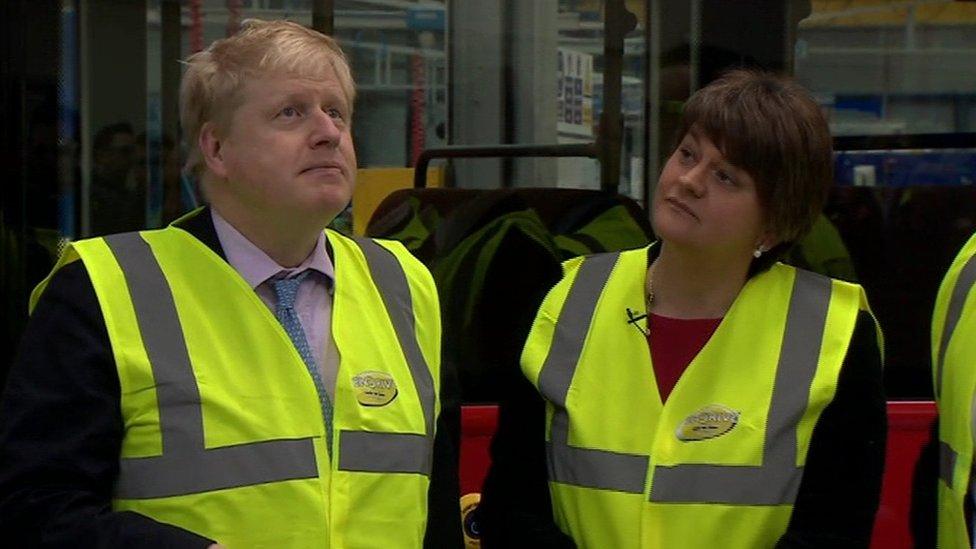DUP 'hardline unionists' on Brexit - Varadkar
- Published
- comments
DUP 'hardline unionists' on Brexit - Varadkar
The Irish PM has said the DUP is not interested in getting what others call a "best of both worlds Brexit deal".
Leo Varadkar said the DUP instead wanted a Brexit deal that respected the integrity of "the precious union".
Speaking in the Irish parliament, he described the DUP as a hardline unionist party not disposed to take advice from Irish political parties.
He welcomed comments from the farming and business community on the draft deal, who broadly support the deal.
Mr Varadkar said the draft deal did not have UK constitutional implications, nor separated Northern Ireland from the rest of the UK.
He said talk of a border poll in the event of a hard border "undermines the work we're trying to do".
'No discussions with EU'
Speaking in the Dáil (Irish parliament), Mr Varadkar was questioned about reports that the UK was attempting to revive proposals to allow for technological solutions to the border.
He said he had had no discussion with either the EU or the UK on altering the text of the draft Brexit withdrawal agreement.
Later on Wednesday the Dáil agreed a motion welcoming the agreement.
There was no formal vote on it as fewer than 10 TDs stood up against the motion.
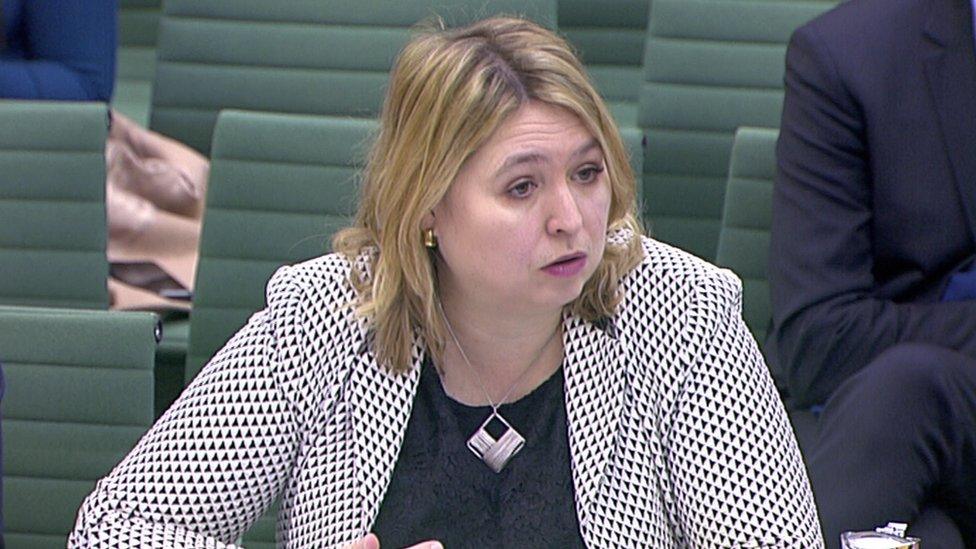
Karen Bradley said she accepted parts of the deal are unpalatable, but urged MPs to support it
Meanwhile, Northern Ireland Secretary Karen Bradley rejected claims the EU could unilaterally change the rules governing businesses in Northern Ireland, should the backstop come into effect.
Mrs Bradley was appearing before MPs on the Northern Ireland Affairs Committee.
The backstop, an insurance policy to avoid a hard Irish border, was agreed in the UK and EU's draft plan.
But Brexiteers have warned it could give the EU more of a say over trade rules in Northern Ireland than the UK government.
The backstop would see Northern Ireland staying aligned to some rules of the EU single market, if another solution cannot be found by the end of the transition period in December 2020.
That means that goods coming into Northern Ireland would need to be checked to see if they meet EU standards.

What does the draft deal say?
By Mark Devenport, BBC News NI Political Editor
Mrs Bradley appears to be referring to a section of the withdrawal agreement (page 323), external, which says that if the EU wants to adopt a new regulation whilst the backstop is in force it must inform the UK through a joint committee, which will consist of representatives from both sides.
Under the terms of the agreement, the joint committee will either adopt the new EU trade regulation, or if agreement cannot be reached, examine ways to maintain the good functioning of the Northern Ireland protocol.
Should a dispute persist, and Northern Ireland continues not to follow a new EU trade rule, the EU has the option of taking what is described as "appropriate remedial measures".

'Betrayal'
The pro Brexit Labour MP Kate Hoey told the committee that some people in Northern Ireland view this as a "betrayal of some of the red lines the prime minister has stated".
She claimed it would give the Republic of Ireland, a member of the EU, more jurisdiction over Northern Ireland's internal affairs than the UK.
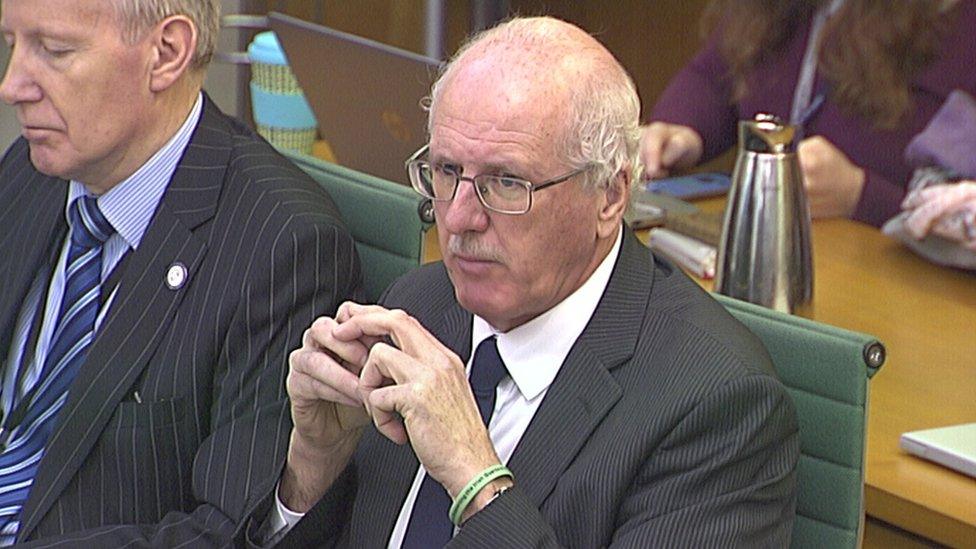
DUP MP Jim Shannon told the secretary of state his party will not be supporting the deal in the Commons
But Mrs Bradley said that was an incorrect interpretation of the draft agreement.
"There will be no rules that will change in Northern Ireland, without that decision being taken by the people of Northern Ireland," she said.
"This will not be Dublin or anyone else making decisions about the rules that happen in Northern Ireland."
Mrs Bradley said the trade rules in Northern Ireland could not be changed without rules changing either at Westminster or Stormont, and could not "automatically be changed by a third party".
The DUP - Northern Ireland's biggest political party - is at odds with the government over its draft Brexit deal and plan for the NI backstop.
Allow X content?
This article contains content provided by X. We ask for your permission before anything is loaded, as they may be using cookies and other technologies. You may want to read X’s cookie policy, external and privacy policy, external before accepting. To view this content choose ‘accept and continue’.
DUP MP for Strangford, Jim Shannon, told the committee his party rejected the Northern Ireland secretary's argument that any backstop would only apply for a short period of time.
Mrs Bradley said there was "no way" the UK would be left in a backstop indefinitely, if it comes into effect.
But Mr Shannon said the DUP saw "the long term of this, and the long term is something we can't agree to".
He also accused the Northern Ireland secretary of "only seeking the opinion the government wants to hear" on its draft Brexit plan.
NI business groups that back the government's plan are due to meet the prime minister on Thursday.
'Rude awakening'
Mr Shannon told Mrs Bradley: "If you don't cast your net wider and stop seeking... one blinkered opinion, which it is clear to me that some people are pursuing, then you're going to get a very rude awakening."
Mrs Bradley defended her decision to brief business groups about the deal when she visited Northern Ireland last week.
"I haven't shied away from anybody or any viewpoint on this," she said.
The differences in opinion between the DUP and the government have put the confidence and supply pact the parties share under significant strain.
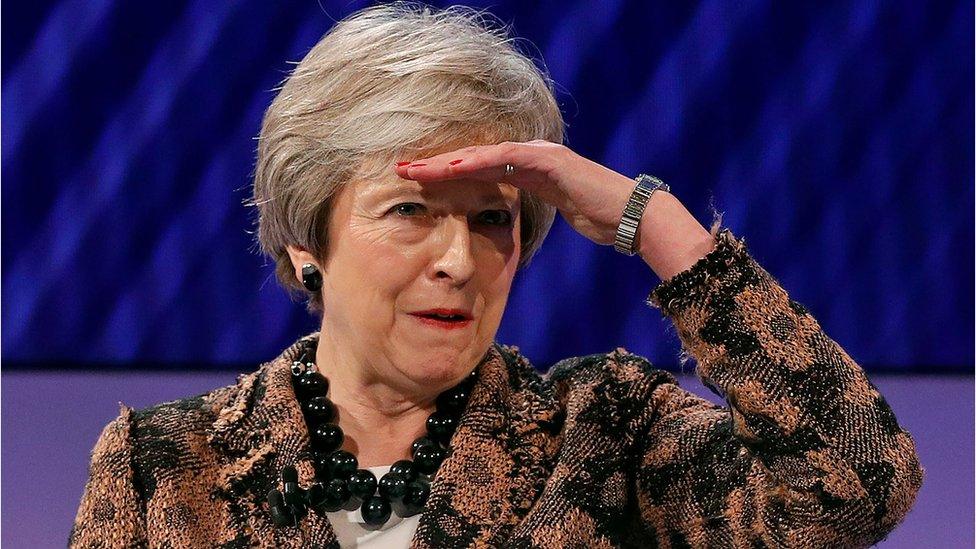
Business figures from Northern Ireland are expected to tell Theresa May they back her Brexit deal
The Conservatives rely on the votes of the DUP's 10 MPs in order to have a working majority in Parliament.
Mr Shannon asked the Northern Ireland secretary why there was a need to "pursue something that is so much against the confidence and supply arrangement".
Mrs Bradley said she found parts of the deal "unpalatable", but stressed that there was only going to be the government's deal - or no deal at all.
She said the plan would protect the integrity of the union and put Northern Ireland in a very good economic position.
- Published30 December 2020

- Published15 November 2018
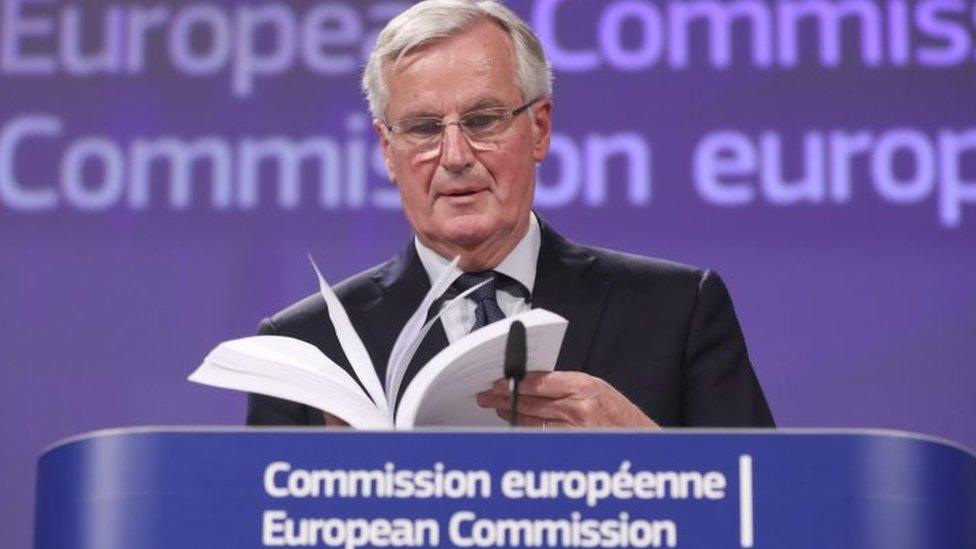
- Published16 October 2019

- Published20 November 2018
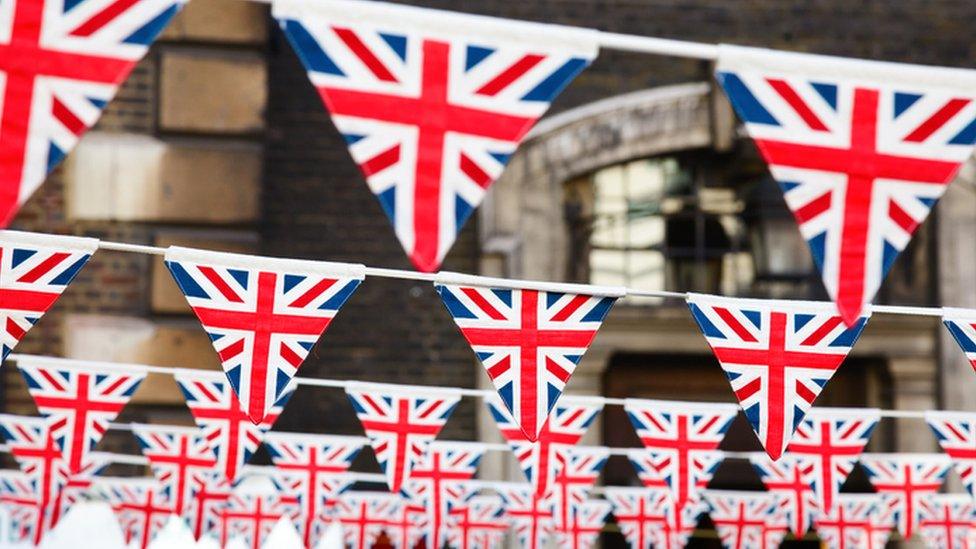
- Published20 November 2018
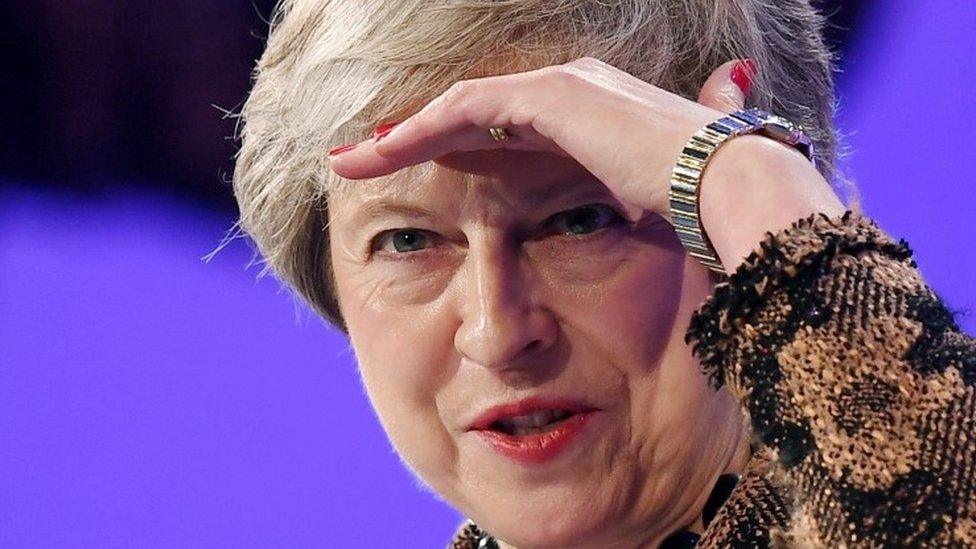
- Published20 November 2018
